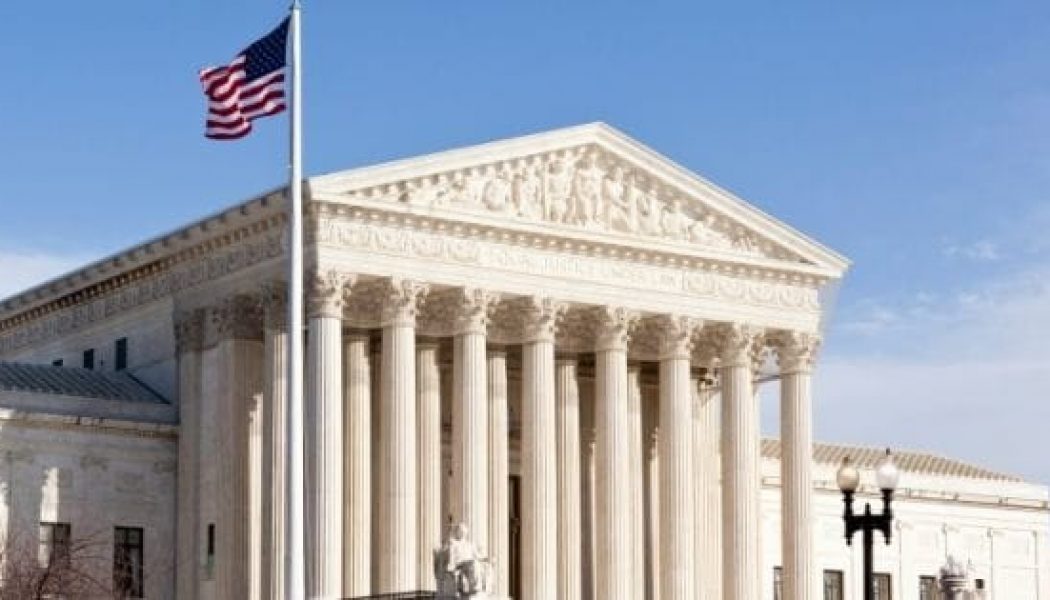
Recently, the U.S. Supreme Court handed down two decisions on gay marriage: one dealing with California’s ban on gay marriage (a.k.a. Proposition 8) and the other with the federal Defense of Marriage Act (a.k.a. DOMA). In neither case did the Court do anything to slow down the advance of gay marriage in the United States.
In the Prop 8 case, the majority decided that the plaintiffs did not have standing to argue this case before the Supreme Court. It remains to be seen what the exact implications of this will be, but for the time being it looks like gay marriage will resume in California.
The Court also decided that section 3 of DOMA—the part defining marriage as the union of one man and one woman—is unconstitutional. It left in place section 2 of DOMA which says that states do not have to recognize gay marriages performed legally in other states.
What does all of this mean? Clearly the most significant of the two decisions is the DOMA decision. It lays the constitutional groundwork for someone to sue the government and provoke another Constitutional challenge. Based on the logic of today’s decision, it is almost certain that a follow-up case would provide a Constitutional guarantee of a right to same-sex marriage. In this sense, it would be like Roe v. Wade and its companion decision Doe v. Bolton. Roe would not have been a sweeping decision without Doe. But taken together they invalidate all state laws prohibiting abortions.
Likewise, today’s DOMA decision will likely be followed by another one that taken together will provide legal gay marriage across the country. As Justice Scalia said in his dissent, we are just waiting for that other shoe to drop. In fact, Scalia says that the majority practically invited the follow-up case. He writes:
By formally declaring anyone opposed to same-sex marriage an enemy of human decency, the majority arms well every challenger to a state law restricting marriage to its traditional definition. Henceforth those challengers will lead with this Court’s declaration that there is “no legitimate purpose” served by such a law, and will claim that the traditional definition has “the purpose and effect to disparage and to injure” the “personhood and dignity” of same-sex couples… The majority’s limiting assurance will be meaningless in the face of language like that, as the majority well knows. That is why the language is there. The result will be a judicial distortion of our society’s debate over marriage—a debate that can seem in need of our clumsy “help” only to a member of this institution.
Mark it down. The challenges will come, and they won’t be long in getting here. It will go something like this. A legally married lesbian couple receives federal benefits in New York where gay marriage is legal. That couple moves to Louisiana and then loses those benefits because their new state doesn’t recognize their marriage. That couple can then sue the federal government using the precise language from today’s DOMA case. If the case makes it to the Supreme Court, the Court would be poised to make gay marriage a constitutional right nationwide.
But even more troubling in the Court’s decision is the language that the majority used to describe those who favor traditional marriage. Those who passed DOMA acted with the “purpose” to “disparage and injure” gay couples. They wanted to “demean” and to “impose inequality” and a “stigma” on gay people. They wanted to deny gay people “equal dignity,” to declare them as “unworthy,” and to “humiliate” their children. This kind of language paints all traditional marriage supporters as “bigots” and as “enemies of the human race” (as Roberts and Scalia argue in their dissents). How long can religiously based objections to gay marriage stand in the face of such moral condemnation heaped on them by the Supreme Court?
There will be religious liberty implications as legal gay marriage spreads across the country. And gay marriage is coming to a statehouse near you one way or the other.
Christians need to beware of going to extremes in the face of this recent news. Some may be tempted to view this in apocalyptic terms, as if it’s the end of the world. Others will be tempted to shrug their shoulders as if this is no big deal. I think that neither of those reactions rings true. If God is sovereign and His purposes unshakable, we can have courage in the face of whatever may come down the pike. Likewise, if we love our neighbors, then how can we be indifferent about things that hurt them and debase the culture? That is why we have an interest in promoting ours and our neighbor’s good in the public space. And that means that we have a continuing stake in the public debate over gay marriage.
I had a reporter ask me if a hysterical and panicked response from Christians would be helpful to the cause of traditional marriage. I think the question kind of answers itself. We may be unjustly labeled as “bigots” and “enemies of the human race.” But panic and hysterics help no one, much less Christians who profess to believe in a sovereign God.
Nothing has happened at the Supreme Court that diminishes the power of the gospel or the fortunes of Christ’s church in this culture. The Court is on the wrong side of history. The Kingdom of God marches on, and the gates of hell will not prevail against it.
Denny Burk is an Associate Professor of Biblical Studies at Boyce College, the undergraduate arm of the Southern Baptist Theological Seminary in Louisville, Kentucky. He also serves as an Associate Pastor at Kenwood Baptist Church, which is in Louisville as well. Visit his website at www.DennyBurk.com.










